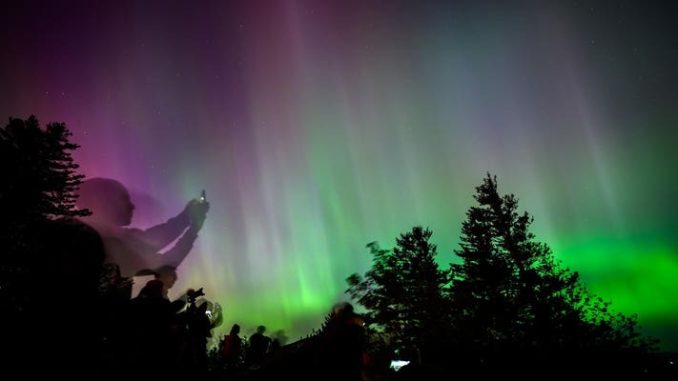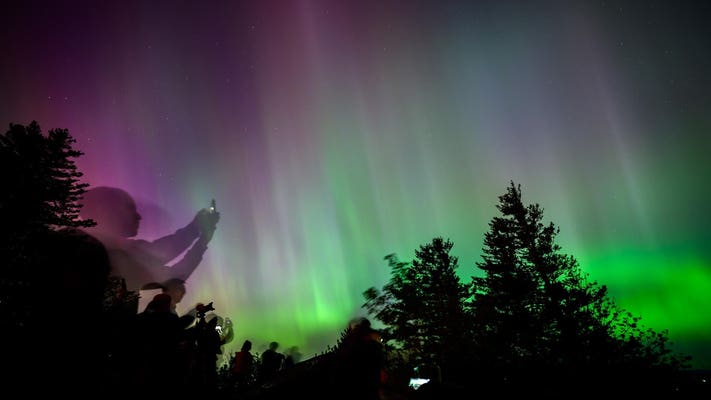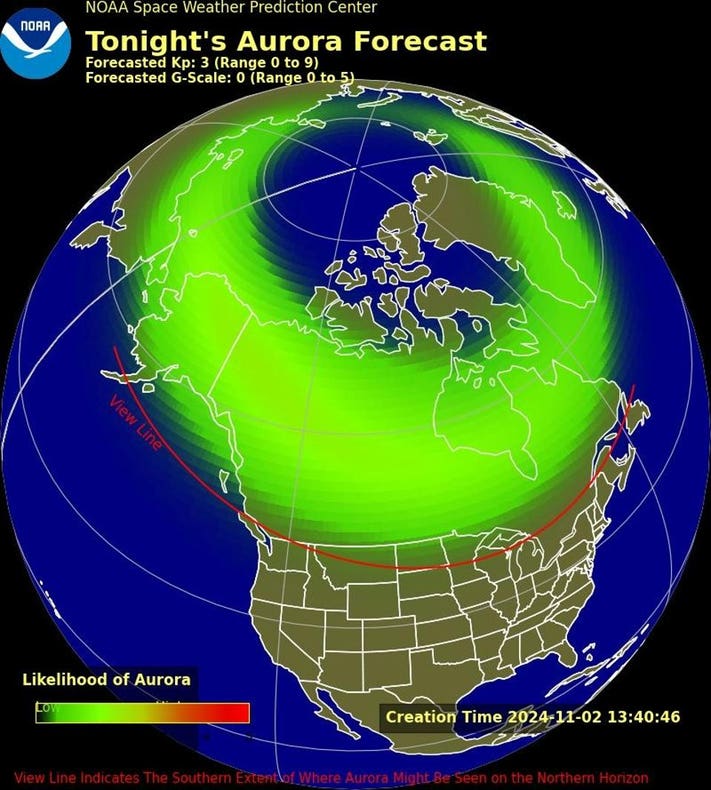
Northern Lights Forecast Update: Aurora Borealis Would Be Seen In These States Tonight
A portion of the northern U.S. may have a chance to see the northern lights on Saturday night, the latest opportunity to view the phenomenon as activity on the sun’s surface reaches a “solar maximum,” according to a National Oceanic and Atmospheric Administration forecast.
Key Facts
Auroral activity is forecast with a Kp index of three on a scale of nine for Saturday night, meaning the northern lights will be further south from the North Pole and be “quite pleasing to look at” for those in the right areas.

The sun emitted an X2.0 solar flare—classified by NASA as the most intense—on Wednesday, which could impact radio communications, power grids and navigation signals and pose possible risks to spacecraft and astronauts, according to NASA.
There were some radio blackouts caused by solar radiation on Friday, according to NOAA, and there’s a chance for stronger radiation—caused by the solar flare—through Monday that could pose risks to passengers and crew aboard aircraft at higher altitudes.
Where Will The Northern Lights Be Visible?
Northern Canada and Alaska will have a higher likelihood of seeing the northern lights, and the view line—marking a minimal opportunity to see the phenomenon—dips just below the Canadian border. Areas in northern Montana, North Dakota and Minnesota will have a low chance of seeing auroral activity, while parts of South Dakota, Wisconsin and Michigan will have a lower likelihood. (See viewing line below.)

What’s The Best Way To See The Northern Lights?
The lights are best seen between 10 p.m. and 2 a.m. local time while away from light pollution at a high vantage point, NOAA said.
What’s The Best Way To Photograph The Northern Lights?
A regular camera with the focus set to the farthest possible setting with a wide aperture, low shutter speed and high ISO value will be able to capture the northern lights, according to Adobe. If using a smartphone, Iceland’s tourism website recommends turning on night mode and a lower shutter speed.
Key Background
There has been an increase in sunspots and coronal mass ejections in recent weeks, with the sun reaching its peak during its 11-year cycle, Solar Cycle 25, according to NASA. Those space weather events impact the Earth with solar radiation and geomagnetic storms, which pull aurora borealis farther south. Opportunities to see the northern lights will likely increase through 2025 and into early 2026, according to NOAA and NASA. Other celestial events have also intensified, with a series of annual meteor showers and comets becoming visible in the night sky. The Southern Taurid meteor showers, active since Sept. 23, will peak in activity on Sunday, and the Northern Taurids will peak between Nov. 11 and Nov. 12. There will be other meteor showers that appear later this year, including the Leonids, Geminids, Ursids and Quadrantids.
Leave a Reply